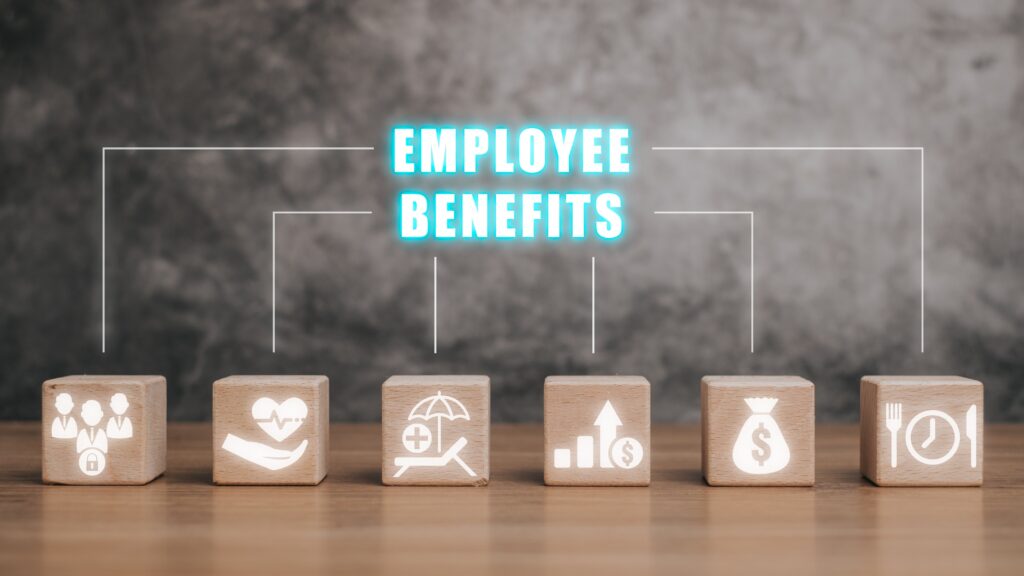The average small business owner spends between 18 and 40 hours a month on HR-related tasks. Choosing when to hire someone to deal with HR issues can be a daunting decision for business owners and executives alike. Most companies fear approaching 50 FTE’s as it leads to rigid legislation such as ACA reporting. Hiring a contractor or using an online service has proven to be an incredibly worthwhile investment.
When business owner opens for business, they often focus on developing and marketing their core product or service. Odds are they do not anticipate having to deal with inordinate amounts of paperwork and ever-changing employment laws and regulations just to hire employees. In fact, forty-one percent of small business owners suffer the costs of 18 hours of HR issue-related labor per month. That jumps to 40 hours per month if the owner decides to tackle processing payroll internally as well, an entire week’s work spent on a non-revenue producing task. Wouldn’t resources be better spent driving profit?
5 Indications You Need To Hire An HR Expert
Even the greatest leaders need help. As your business grows larger and more complicated, hiring an HR expert becomes an inevitable need. How do you know when the time is right? What signals that your company is ready to bring on your first HR professional? Outlined below are five signs it is time to hire your first HR team member.
1. You need to better allocate your time.
As a business owner, you are likely wearing multiple hats and sacrificing your time to minimize costs. Tackling HR related tasks seems to make good financial sense while your company is in its early stages, even if it means longer days. At first, there may not even be enough work to justify hiring a full-time HR employee. However, it may be time to re-evaluate this if you are personally dedicating 18 or more hours every month to HR. Ask yourself, “Is this really worth my time?” What higher level issues could you tackle if you had more time? There is no faster way to undermine your morale and become overwhelmed than to burden yourself with menial HR tasks. What ignites your passion about your business? Would focusing on those core items be of greater benefit to your company? Are there tasks that only you can do as a business owner? Asking yourself these questions may lead you consider off-loading some of your HR responsibilities.
2. You are not confident that your HR practices are fully compliant to state and federal laws and regulations.
Eighty-six percent of small business owners say that they are confident that their HR practices fully comply with state and federal regulations. However, when asked about specific duties like maintenance of employment records, proper labeling of employees and contractors, and keeping up-to-date employee handbooks, less than 50% are confident. With all these moving pieces and complications, doubts can easily creep in to the minds of business owners. Many of them wonder if they are missing something critical, especially when they struggle to even find time to dedicate to ensuring HR tasks are done correctly. Whether you are managing HR by yourself, outsourcing tasks, or utilizing a non-dedicated employee, how confident are you in your HR compliance? Do you spend a lot of time speaking with HR consultants or searching the internet trying to nail down the current labor laws? The IRS has audited more than 30% of small businesses and the fines for noncompliance are typically very serious. If you are at all uncertain about your compliance it may be time to bring on an expert who can lower risk, save you time and money, and give you peace of mind.
3. Your business is expanding rapidly.
Growing pains are to be expected as a business scales up its operation. There are new challenges that arise as new bench marks are reached. Growth usually breeds complexity. Communication can suffer if employees and contractors are spread out over multiple locales. Limited time can make doing proper employee evaluations difficult. Onboarding new employees can become arduous. An organization’s ability to discuss sensitive issues and resolve conflicts can be hindered by rapid expansion. Company policy is often overlooked. It is imperative to recognize the need for HR organization before issues spiral out of control. When a company reaches twenty employees, there is a 50% chance that HR is being handled by the owner, a non-dedicated employee, or a dedicated HR person or team. Once the employee count hits between 50 and 100 employees, there’s a 55% chance it has a dedicated HR person. If your business is approaching 50 employees or more, it may be time to contemplate hiring an HR professional. Is it something you can afford right now? How much does HR cost you now? Do you even know the cost of your HR? It’s important to find a solution that best fits your situation.
Meet with and ABO professional today to learn how we can help you excel with our turn-key solutions.
4. You want to cultivate a good business culture.
Most business owners create the kind of company they want to work for. They usually hire people who can unify others and support the vision of their company. They try to create a culture that will attract and retain top talent to maintain their competitive edge. Most would agree that company culture has a significant impact on the bottom line. Feedback, reward systems, a positive working environment, and career advancement opportunities all contribute to higher morale, more productive employees, and lower turnover. If boosting morale, increasing productivity and attracting good employees is becoming of increasing importance to you, it may be time to bring in an HR professional. Ideally, someone other than the owner should be responsible for protecting the culture of your business and strategically develop it as the organization grows.
5. You have decision paralysis.
Let’s say you have determined that hiring an HR professional is both necessary and cost effective, but something is still holding you back. Giving up control and hiring someone to develop and manage your team of employees can feel like dropping off your kids at the babysitter’s house for the first time. It takes a huge amount of trust, but the benefits of off-loading this responsibility are well worth the investment. Stick to your strengths and empower others who have the talent and time to see HR management through, and you will find yourself being a more effective leader.
If you’re not quite ready to hire internal HR staff, but getting some professional HR help is a must for your business within the next year or two, consider bringing on a PEO (professional employer organization). This is a fast way to address the HR shortcomings your organization may have as you scale up your business. Not only will you enjoy Fortune 500 style benefits and compliance, you will sleep better at night knowing you have full control of your operations and a trusted and skilled HR advisor in your corner.
PEO’s vs. In-House HR Professional
Is it wiser to use a PEO or hire an in-house human resource professional? There is not always a clear-cut answer to this question, however, using a PEO has proven an excellent allocation of investment dollars. Most people do not properly calculate the entire financial cost of their hiring decisions; they only look at the cost of a PEO vs. the salary of the HR employee. However, salary alone does not reflect the cost of that employee. Below is a sample of the costs associated with a PEO verses the cost of hiring an in-house HR professional. The average HR director in the USA earns about $102,000 annually. We slightly underestimate the salary for our example. Most also forget the hard cost of an office space that the employee must occupy five days a week and the office equipment they use daily. A single HR professional also manages multiple vendor relationships outside the scope of their daily duties. This would include an outsourced payroll company at a cost of about $350 per employee per year.
The potential savings in benefits for companies can be massive when using a PEO. With group plan pricing, PEO’s generally have much lower rates for medical, dental, and vision which are pretty standard offerings in this economy. There are many other cost savings associated with the use of vendors in the areas of legal services and governmental compliance. Things like proper I-9 forms, employee handbooks, and 401k start up, end of year audits, and proper reporting are all critical to maintaining your bottom line. Taking into consideration the simplicity associated with an HR bundle provided by a good PEO, it makes perfect sense to outsource the entire HR process. Even the most credentialed HR professional cannot compare to a PEO. Each branch of a well-run PEO is directed by experts who specialize in a particular area of HR. If you want a Fortune 500-caliber human resource department at a fraction of the cost, hire a PEO. It will be the best decision you ever make for your business’s HR.


